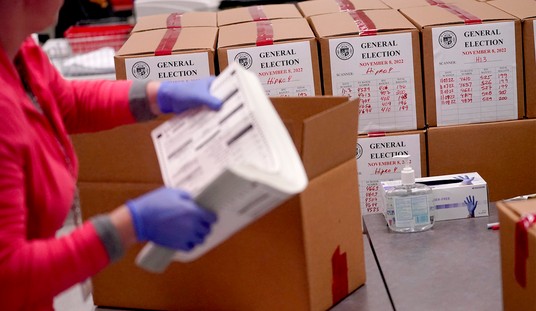A debate has been raging for years over whether the world’s most widely used herbicide, glyphosate, is carcinogenic. Like so many other issues relating to the environment, the discussion has been marked not by sober scientific analysis and debate, but instead by zealotry, frivolous lawsuits, and political pandering to extremists. Meanwhile, mounting evidence against alleged cancer links goes ignored.
For a time it seemed that reason would triumph, but the anti-glyphosate lobby recently struck again, this time targeting tea of all things. The Organic Consumers Association (OCA) has sued major US tea producer Bigelow Inc. over the presence of trace amounts of glyphosate in one of its green teas. Naturally, the organic food army is wasting no time to exploit this to the fullest. Bigelow, America’s second largest tea brand by sales, provides too good an opportunity to castigate yet another food company as villainous and deceptive.
But amid all the frenzy, let’s take a step back and ask: what glyphosate levels are we actually talking about? According to the lawsuit, independent tests showed that dried tea leaves contain a mere 0.38 parts per million (ppm) of glyphosate – far below the federal tolerance level, which the Environmental Protection Administration (EPA) has set at 1 ppm for dried tea. When brewed, the glyphosate content is reduced to practically zero.
These are absurdly small values to begin with, but perspective is the last thing one expects to find during a witch-hunt.
The green tea lawsuit is part of a pattern where anti-herbicide fanatics seek to conflate any product on which pesticides have been used at some point during the production process as fundamentally dangerous. And the easiest way to do that is to cry “cancer!” Specifically, they have leaned heavily on a dubious 2015 assessment by the International Agency for Research on Cancer (IARC) that labeled glyphosate as “probably carcinogenic”.
Recommended
In October, Reuters revealed IARC’s glyphosate report to be gut-wrenchingly flawed. Prior to publication, IARC’s lead scientist on the report shamelessly edited out specific findings that contradicted the body’s agenda of painting the herbicide as dangerous. As a consequence, concrete evidence giving glyphosate a clean bill of health didn’t appear in the final report, fundamentally altering the overall tone of the assessment.
So, the desperate stretch that is the Bigelow case is hardly surprising. Glyphosate’s opponents have increasingly been forced into the defensive as of late because the evidence discrediting their claims is piling up.
Most recently, the EPA published a long-awaited draft risk assessment report concluding that glyphosate is not carcinogenic to people – much to the chagrin of some of the most ardent opposition groups such as the Natural Resource Council.
In another blow to glyphosate’s detractors, reason finally stomped out ideological zeal in November when the chemical’s EU license was extended for five years after various European agencies had conclusively disproved a link between glyphosate and cancer. The decision brought an end to two years of relentless fear-mongering campaigns.
While the global consensus on glyphosate as causing no harm is an encouraging sign that logic is still capable of triumphing over emotion, the recently published EPA report stands out as having potentially far-reaching consequences. It could be instrumental in toppling one of the nation’s most audacious attempts at undermining glyphosate’s market position, namely California’s Proposition 65.
The Proposition forces businesses to put a warning label on products containing substances “known to the State of California to cause cancer,” a bureaucrat-maintained list which now includes glyphosate despite contrary scientific evidence.
Compelling businesses, retailers and food companies to attach warning labels to glyphosate-containing products by 2018, especially in the face of overwhelming scientific evidence of its safety, raises serious First Amendment questions. The requirement effectively forces the affected parties to commit false speech by calling a chemical dangerous that has been unequivocally shown to be safe.
Keeping glyphosate on the list is a prime example of an ideologically driven agenda outstripping the facts and the interests of consumers. Herbicides such as glyphosate have greatly increased crop yields and lowered costs for farmers and consumers alike. Placing pointless restrictions on it risks farmers’ livelihoods and undermines the agricultural sector—which generates one-fifth of our GDP and provides 28% of jobs in the country, with a total economic impact of $6.7 trillion per year.
Since glyphosate was added to the Prop 65 list, farmers’ associations have drowned the state in lawsuits to prevent negative fallout from the law. One such suit, filed at a California Court of Appeal, argues that the law’s listing mechanism violates the state’s constitution because it “effectively allows […] IARC to make the final listing decision for a carcinogen under California law.” The action received the support of 11 state attorneys general as well as the U.S. Chamber of Commerce, bolstering arguments that IARC’s listing was specious.
Such a flawed legislative process leaves no doubt that California lawmakers given greater weight to the demands of environmental extremists and organic activists than to scientific expertise. But if recent developments are an indication of a changing tide, California may soon have to revise its approach to glyphosate. In that sense, the attack against Bigelow and its tea appears to be little more than a defeated lobby lashing out in desperation.

























Join the conversation as a VIP Member